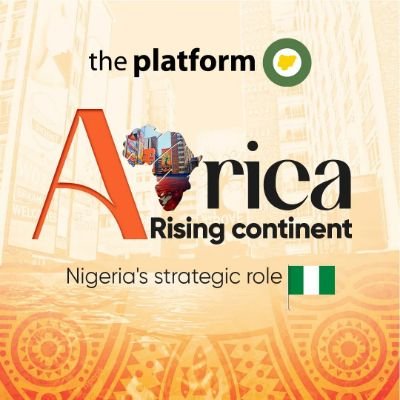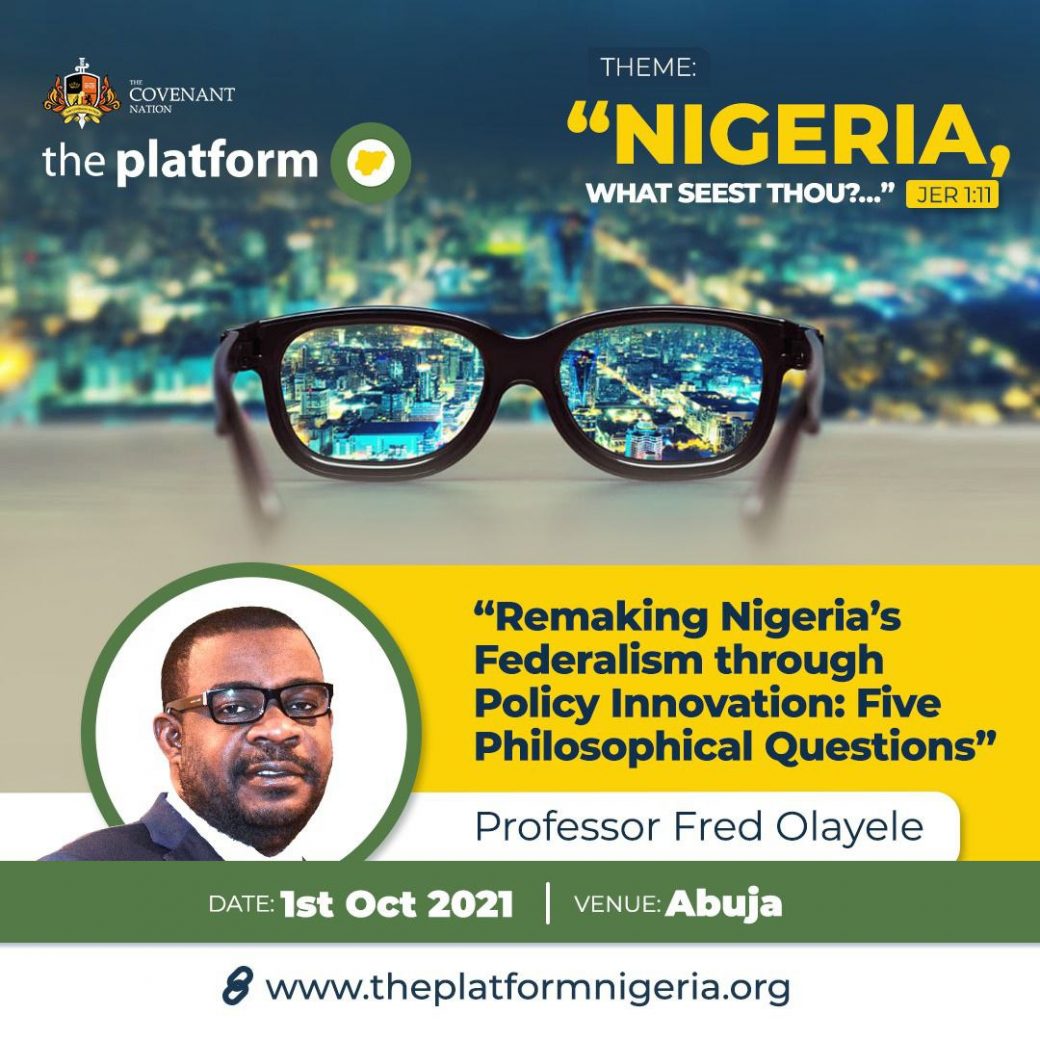Prof. Fred Olayele started by thanking the idea of convening the platform. Following this, he commented that a day like today – Nigeria’s Independence Day – should be for parades ordinarily. He went on to say that Nigeria is at a crossroads. He then followed this up by mentioning that the responsibility to salvage Nigeria is a collective one. He went on to say that Nigeria’s case is a special one. After a couple of other related statements, in his speech, he was going to ask 5 philosophical questions. He went on to stress that his address was for the organised private sector rather than the government. He stated that policy laziness is what has set us back as a nation.
Prof Olayele specifically mentioned that Federalism has failed Nigeria and that it was time to retool it to make it work for everybody. Using technology as a point, he hinted that the key to change was infusing technology into the system. Going back to the issue of laziness, he used a quote from one of John Dryden’s writings on the subject. He then went on to share a definition of Federalism.
Asking his first philosophical question, he queried the audience thus; “Who’s to blame for the current state of our nation?”. After this question, he also questioned the fact that Nigerians wait for the 4-year election cycle to determine their national destiny. Then, the second philosophical question came, “Is it time to adopt a different governance model in Nigeria?” He gave several examples of how Federalism has pushed a lot of countries forward. He noted that even though politics was very important, Nigeria needs to reduce the basis of the debate to economics and evidence-based analysis.
He went on to the next question which says, “Who is afraid of decentralisation?” As Prof. Olayele spoke further, he disclosed that the future of the country lies in the hands of the upper-middle class. He made a distinction saying he wasn’t referring to the billionaires or those at the lower end of the spectrum/later. Going back to the term he earlier introduced, he charged everyone that they mustn’t submit to policy laziness.
Addressing the issue of secession, Prof. Olayele talked about the size of Nigeria being our strength and that breaking apart would spell doom for us. He charged Nigerian governors to make sure that they merge the endowments in their state with technology and they would create jobs at the end of the day.
Going on to the fourth question, he asked if there were any other economic lessons from other jurisdictions for a sustainable subnational fiscal autonomy model? Are there any lessons? He mentioned that the debate for striking the right economical model is a regular one amongst countries worldwide. However, the bone of contention in Nigeria, revealed, is the ability of the federal government to intervene in the affairs of the state. To make a distinction between Nigeria’s Federalism and that of some other countries, he gave an example of Canada and how it was meant to be an example of a highly decentralised country with very few powers for the provinces. In the same way, the United States was meant to be a highly decentralised federation with the states having enormous powers. However, he pointed out that the federal government of the US turned out to be more powerful than it was meant to be due to reasons like the Cold War, the American Civil War and the Superpower status of the US.
Hammering on the need for Nigeria to innovate its way out of its current type of Federalism, Prof. Olayele asked his final question; “Can we fix Federalism by innovating Nigeria’s economic system?” Following this question, he stated that he believes that the future of Nigeria is linked to policy innovation. Using the example of how the world’s richest people in developed countries live and stay among low-income earners, he introduced the term, Equitable Regional Economic Development.
Drawing his session to its end, he mentioned the case of Ethiopia. He mentioned how their prime minister won the Nobel Peace Prize for ending the 20-year conflict with Ethiopia in addition to initiating a number of unprecedented reforms that transitioned the economy into a more market-oriented model and also for increasing women’s participation in government. However, the conflict in the Northern Tigray region of the country comes to change everything after a short while. He stated that the promise and practice of Federalism were constantly at odds. Establishing the fact that Federalism was a flawed governance model that doesn’t have all the answers to many contemporary complicated problems, he said that it is time for Nigeria to make economics the core argument.
He admonished that it was time to redesign the country’s economic architecture with the current flawed model by letting economic entrepreneurs rise. He went on further to call on policy entrepreneurs as well. This group he defined as key actors in the innovation process since they’re interested in policy change. In addition to that, they are agents of disruption because they champion the pursuit of policy change by seeking ideas and collaborative approaches to help reduce inefficiencies. They are a special category of institutional entrepreneurs in the policy process.
He also mentioned that regional growth dynamics have implications for national growth and prosperity and given the pace of digitisation in the global economy, harnessing regional innovation capabilities for national unity remains compelling.
He concluded by saying that Nigeria must redesign and reimagine a model that works for all. He also emphasised that economics must be at the heart of it all. To realise the Nigeria of our dreams, Prof. Olayele said we need not rely on a one size fits all model that causes confusion.

